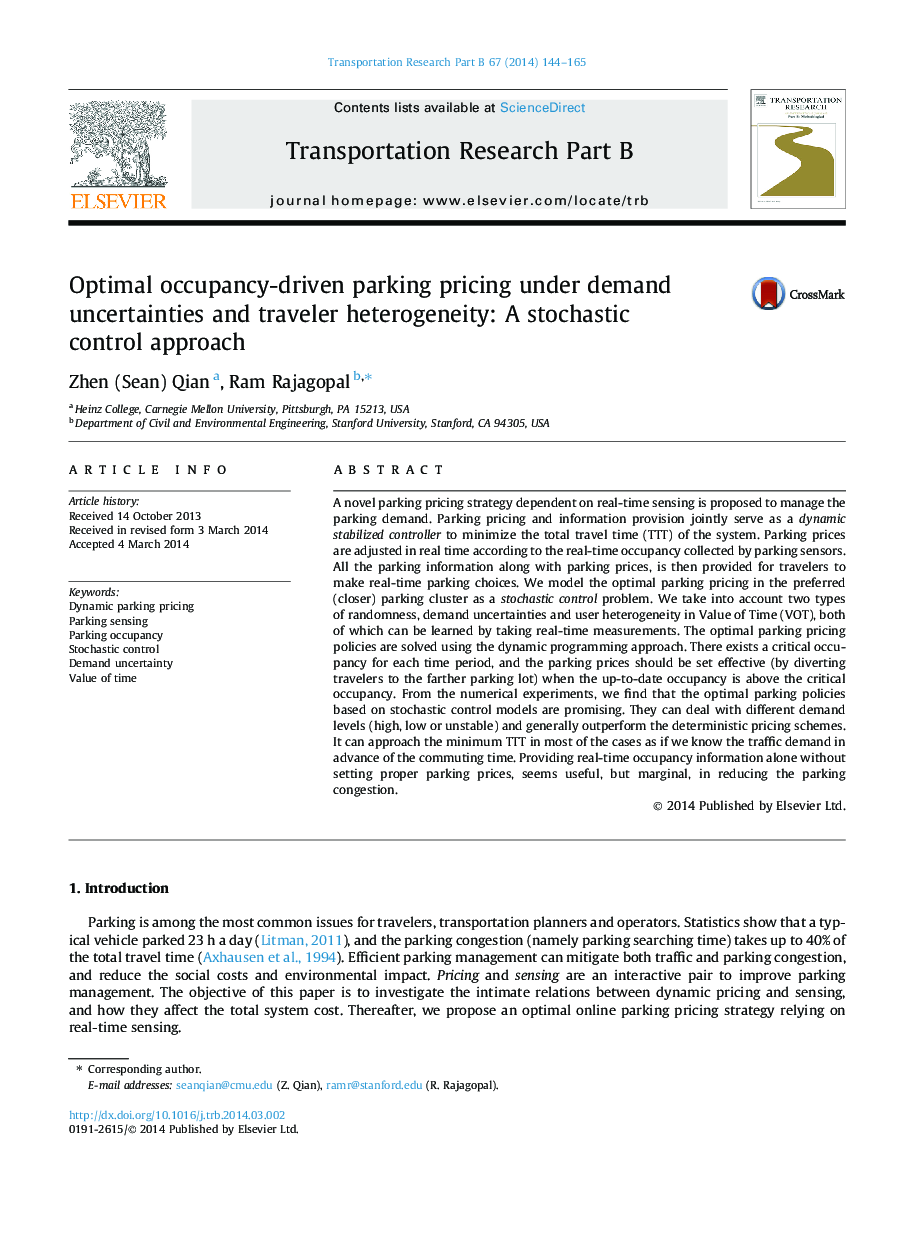| Article ID | Journal | Published Year | Pages | File Type |
|---|---|---|---|---|
| 1131855 | Transportation Research Part B: Methodological | 2014 | 22 Pages |
•Parking pricing and information provision jointly serve as dynamic stabilized controller to minimize the total travel time.•Propose real-time parking pricing policies that depend on real-time occupancy information.•The optimal parking pricing in the preferred parking area is formulated as a stochastic control problem.•At each stage, the price should be set effective when the real-time occupancy is above a critical value.•The solution to the optimal control problem has a concise and meaningful solution that can be practically implemented.
A novel parking pricing strategy dependent on real-time sensing is proposed to manage the parking demand. Parking pricing and information provision jointly serve as a dynamic stabilized controller to minimize the total travel time (TTT) of the system. Parking prices are adjusted in real time according to the real-time occupancy collected by parking sensors. All the parking information along with parking prices, is then provided for travelers to make real-time parking choices. We model the optimal parking pricing in the preferred (closer) parking cluster as a stochastic control problem. We take into account two types of randomness, demand uncertainties and user heterogeneity in Value of Time (VOT), both of which can be learned by taking real-time measurements. The optimal parking pricing policies are solved using the dynamic programming approach. There exists a critical occupancy for each time period, and the parking prices should be set effective (by diverting travelers to the farther parking lot) when the up-to-date occupancy is above the critical occupancy. From the numerical experiments, we find that the optimal parking policies based on stochastic control models are promising. They can deal with different demand levels (high, low or unstable) and generally outperform the deterministic pricing schemes. It can approach the minimum TTT in most of the cases as if we know the traffic demand in advance of the commuting time. Providing real-time occupancy information alone without setting proper parking prices, seems useful, but marginal, in reducing the parking congestion.
